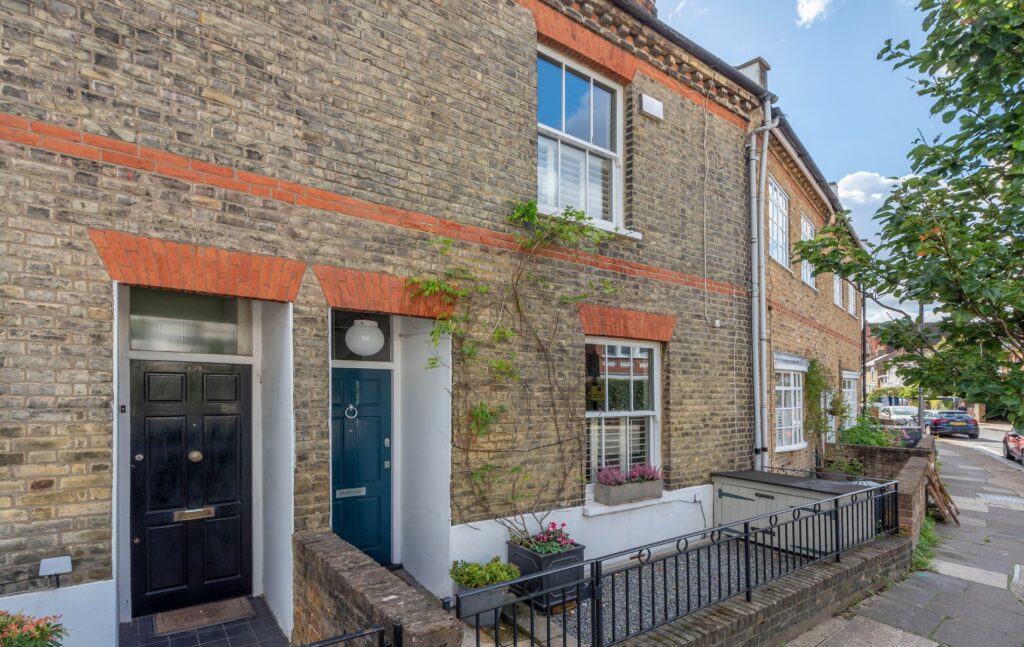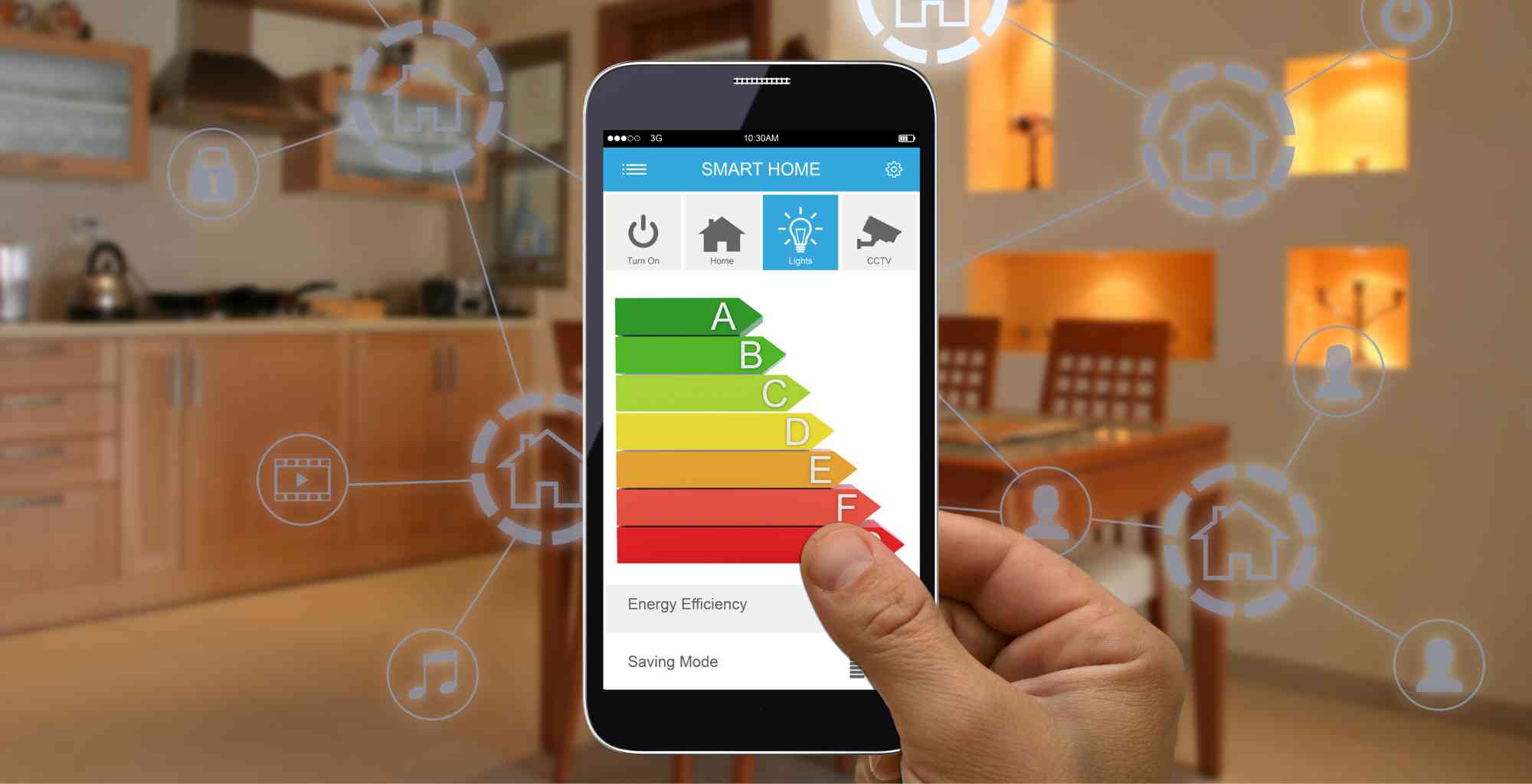We are increasingly asked by homeowners what steps they should take when considering how to improve your EPC rating.
With the energy costs increasing, current (and potential) homeowners and tenants are becoming more environmentally aware.
Whether you are letting or selling a property, improving your EPC rating can not only save you money but can also make your home look more attractive to potential buyers and tenants.
In this blog, we share useful information on EPCs and top tips for making your property more energy-efficient.
What is an EPC rating?
An Energy Performance Certificate (EPC) is used to measure a property’s energy efficiency.
The EPC will include information regarding the property’s energy usage and costs likely to be incurred together with recommendations for improvements that could reduce bills, make the property more efficient and improve your EPC rating.
Sellers have to provide this certificate to potential buyers, so an EPC rating must be completed prior to the property being marketed.
How long is an EPC valid for?
An EPC is valid for 10 years.
How your EPC is calculated
Your EPC rating is measured by:
- The amount of energy used per m²
- The level of carbon dioxide emissions (given in tonnes per year)
Who does an EPC?
An EPC is carried out by an accredited energy assessor. They will access all of the rooms in a property and the loft, inspect heating systems and take measurements and photographs of key information included in the survey.
Unlike a building survey, an EPC is not invasive, it is purely a visual inspection of a property to establish its energy efficiency.
Why does my EPC certificate show two ratings?
An EPC will include the current rating of your property, alongside the potential rating. This potential EPC rating is an estimate on what you could achieve if you were to make energy efficient improvements on your property.
Why should you improve your EPC rating
There are many benefits to improving your EPC rating that you should consider.
Properties with a high EPC rating are typically more attractive for potential buyers or renters, mainly because the more energy efficient a home is, the less the energy bills are in the long run.
It’s always advisable for sellers to take the steps that they are able to, to improve an EPC rating, prior to putting a property on the market as potential buyers will need to consider the costs involved to improve the property’s energy efficiency themselves.
What is a good EPC rating?
The efficiency is measured using a scale of A-G, each letter applicable depending on a score out of 100.
A is the best possible score, these homes will be incredibly efficient, have less impact on the environment and will enjoy low fuel bills.
A property with an A rating will have a score between 92 – 100, a property with a G rating, the lowest possible score, will have a rating between 1 – 20 points.

How to improve your EPC rating:
You can improve your EPC rating and make your home more energy-efficient by following these steps below.
1. Install double glazing or upgrade or triple glazing windows
Single glazed poorly insulated windows have been said to account for up to 40% of heat loss from a home meaning upgrading windows can significantly improve an EPC rating.
Double or triple-glazed windows are both options to consider. Each will boost your EPC rating and improve the temperature of your home. However, note that triple-glazed windows are the more expensive option.
Draft proofing your windows will also help.
2. Loft insulation
One of the cheapest and easiest ways to boost your EPC rating is to install loft insulation. This can be done professionally, or be completed by the homeowner.
The insulation can help to reduce the amount of energy that escapes through the roof.
It is recommended that when installing loft insulation it should be at least 270mm thick.
3. Wall insulation
Insulated homes lose a high proportion of their heat through the walls. Most homes in the UK either have cavity walls or solid walls.
A cavity wall has two walls with a gap in between, and should be appropriately insulated.
A solid wall is one wall and has no gap. Typically, if a property has solid walls, the EPC rating is lower.
To improve this, you can insulate solid walls internally or externally though this is one of the more expensive actions to take to improve your EPC rating.
If done correctly, it can significantly change the score given to the property, so in some cases it is worth considering.
4. Hot water insulation
If you have a hot water cylinder it’s important to make sure there is adequate insulation around the tank. This is a cheap and easy option to do to boost your EPC rating.
5. Switch to energy efficient lighting
A simple and easy way to increase your EPC rating is to replace your inefficient bulbs, with energy efficient LED bulbs. Not only do LED bulbs last much longer but they’re more efficient.
6. Replace the old boiler
Heating is reportedly accountable for over half of a home’s energy costs meaning an inefficient boiler could be having a hugely negative impact.
If you have moved into an old property, or have an old boiler it is worth considering replacing the boiler with a modern A-rated one. This will help to increase your energy efficient rating, and reduce your energy bills.
7. Consider renewable energy sources
If it’s a possibility, renewable energy sources such as solar panels, ground-source heat pumps and biomass boilers can significantly improve an EPC rating.
Homes that achieve an A rating will usually have a renewable energy source.
8. Seal open chimneys
Open fires are beautiful features that many properties in West London do have but if they’re not in use it’s a good idea to block them or install a closed heater in the space instead.
9. Obtain documentation
Often overlooked by sellers, it might be the case that when they bought the property the previous owner had installed additional energy-efficient factors that would boost an EPC rating.
Whether installed by yourself, the current owner, or a previous owner, if these features are not easily accessible, the EPC assessor cannot include them in the score meaning obtaining documentation to prove work has been carried out is necessary. Have such documents available for the EPC assessor when they visit the property.
10. Install a smart metre
While installing a smart metre does not directly improve your EPC rating, it enables you monitor how much energy you use in the property and help you figure out how to save energy at home. This data can provide you with a greater understanding of how much energy you are using and help you decide what changes need to be made.

What about listed homes or those in conservation areas?
In West London, there are many older homes and these typically require more attention to boost the EPC rating.
There is also the additional consideration that many houses are located within conservation areas, such as Bedford Park or St Peter’s, meaning changes made must be sympathetic and in line with the guidance for the area.
Listed buildings do not need an EPC but can be evaluated to ascertain what is possible to improve energy efficiency. The government recommends owners of listed properties take advice from their local authority conservation officer regarding any planned works.
Does EPC rating affect house prices?
Undoubtedly a poor EPC rating will affect the house price. Buyers will often view a home with a low rating less favourably, therefore if it is necessarily improving your EPC rating is worthwhile considering.
Many homeowners actively take steps to improve their property’s energy efficiency throughout their time living in a home when a new technology is released or a more cost-effective way to enhance the property becomes available.
There are some elements that are not always considered that can improve a rating – something so simple as switching the lightbulbs!
EPC Impact on House Value
A recent survey encompassing over 2,300 participants, including UK homeowners, estate agents, and mortgage brokers, has unveiled a compelling trend in the UK housing market.
Homes that meet lofty energy-efficiency standards are fetching prices about 15.5% higher. Astonishingly, 36% of estate agents report that in some areas, buyers are paying a premium of over 20%. What’s more, 79% of agents have witnessed a surge in queries about energy efficiency compared to last year.
The Shift in Homebuyers’ Preferences
The survey also spotlighted energy efficiency’s increasing allure for prospective buyers. During the pandemic, bigger gardens and home offices were all the rage. But now, with escalating energy expenses looming large, energy efficiency has overshadowed even these coveted features.
In a telling stat, when pondering investments in their homes, 36% of respondents leaned towards an energy-efficient boiler. This compared to a slightly lesser 27% who’d opt for the ever-popular kitchen renovation.
EPC for lettings properties
In the UK, landlords can legally be fined up to £5,000 if a property is found to have an EPC rating below E (F or G).
Our Property Management team work closely with landlords to ensure their properties are efficient, offering advice and guidance on the most effective way to meet the industry standards.
How to improve your EPC rating
At Horton and Garton we work with a group of professionals who carry out EPC assessments in the instance that a property does not have a valid certificate in place.
It’s often the case that a property might have been altered and improved by the current owner meaning when it’s time to sell it can be worth having a new EPC carried out to ensure the rating is accurate.
To talk to us about the steps taken when preparing your home for sale or to let please do get in touch, we’d be happy to discuss the process of selling or letting in greater detail and answer any questions you might have regarding the current guidelines that must be adhered to.





